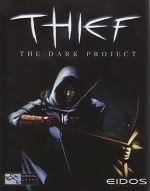Last week I pulled a man off a boat. He hit the water with a splash, and I flattened myself against the side. I feared to breathe and waited for his colleagues to notice his absence and hunt me down with sword and spear.
But they paid no attention and continued to patrol the deck as if nothing had happened. Twelve men were stationed on that boat; one-by-one, I dragged them to their doom. Even the last one strolled around an empty boat devoid of fellow guards and remained utterly oblivious until my hand snaked up and caught his belt.

As impressive a technical achievement as Assassin's Creed 2 was, its artificial intelligence often left something to be desired. At first the guards' obliviousness was funny, but by the time I'd finished, it had become farcical. Any investment I had in Ezio's adventures crashed down with my suspension of disbelief as my opponents were revealed to be nothing more than thinly-veiled automata.
This behavioral uncanny valley is nothing new to video gaming; we're accustomed to characters behaving according to predefined mechanics rather than sapient priorities. Perhaps it's simply more jarring in Assassin's Creed due to the fidelity of the world Ubisoft created in so many other ways, but the consequence is the same: the guards lose all credibility as opponents. They're simply a frustrating and awkwardly unpredictable game mechanic you must overcome.
 That's not to say that human-like behavior is necessarily a good thing. Stealth games such as Metal Gear and Thief regimented enemy reactions with artifice through set patrol routes, vision cones, and the like. After all, trying to interact stealthily with truly believable observers tends to be frustratingly difficult. As far as we've progressed from our savannah origins, we still maintain elements of our animal instincts; the faintest noise or slightest movement is enough to alert us to potential danger. Remaining hidden in the face of such scrutiny is difficult at the best of times and nigh-on impossible with the relative imprecision of both control and sensory feedback offered by gaming. Assassin's Creed's guards occasionally fall foul of such over-vigilance, which draws even more attention to their prior lack of awareness.
That's not to say that human-like behavior is necessarily a good thing. Stealth games such as Metal Gear and Thief regimented enemy reactions with artifice through set patrol routes, vision cones, and the like. After all, trying to interact stealthily with truly believable observers tends to be frustratingly difficult. As far as we've progressed from our savannah origins, we still maintain elements of our animal instincts; the faintest noise or slightest movement is enough to alert us to potential danger. Remaining hidden in the face of such scrutiny is difficult at the best of times and nigh-on impossible with the relative imprecision of both control and sensory feedback offered by gaming. Assassin's Creed's guards occasionally fall foul of such over-vigilance, which draws even more attention to their prior lack of awareness.
In short, a lack of intelligence on the part of your enemies is a terrible thing except when it isn't. I'm glad we've got that straightened out!
To resolve this apparent paradox, we need a contrasting example. Batman: Arkham Asylum was one of 2009's biggest success stories It earned critical acclaim and a smattering of awards for its developer Rocksteady, and gamers bought over two million copies in its first month. The secret of its success? It used a careful balance of disparate action and stealth sections to let you slip into the batsuit and genuinely feel like you're Batman for the first time.
You perch on a gargoyle and watch the paranoid inmates patrolling below. You pick your moment to swoop upon a straggler and vanish into the shadows again as the survivors realize they're not alone. Shouts fill the air; they pair up, swing their guns in erratic arcs, and fire at shadows before realizing their mistake. This makes it all the sweeter when you swing down, snatch another inmate without being seen, and leave him dangling in front of his allies.

Arkham Asylum makes full use of the genre's tendency towards artifice. Inmates with clear line of sight fail to notice Batman at moderate distances. Even at heightened awareness, they remain oblivious to events happening right behind them, and refuse even to look up until enough of their compatriots are hanging from the rafters. This behavior is hardly convincing enough to escape the same criticism as Assassin's Creed.
But Rocksteady seemingly tapped into one of the basic principles of the stealth genre: While Batman remains unseen, the player becomes more satisfied as the reactions of characters in the environment increase. In Arkham Asylum, they achieve this in two ways: First, they utilize the expected artifice of the genre to reduce the inmates' awareness of the player. This emphasizes Batman's stealth and offers the chance to observe and plot from the shadows. Second, the inmates' responsiveness to their environments is maximized and draws attention to the impact of the player's actions.
It's this fine balance which allows the game to achieve the superhero power fantasy in a way which few others have. It's not that Batman's adversaries are any more observant than Ezio's, but they're observant of different things. And when there's a shadowy figure lunging out of the gloom at your throat, that makes all the difference.
Originally posted at Generation Minus One, the webcomic of last-gen gaming.


